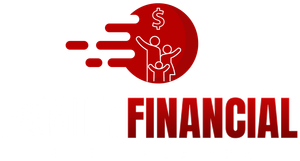Cash Loans in Corinth, MS
At Family Financial Services Inc., we offer quick and easy loan approvals in just 1 hour, with amounts ranging from $500 to $15,000. With over 35 years of experience, our family-owned and operated business is dedicated to serving Corinth, Batesville, MS and everywhere in between.
Over 35 years
We have over three decades of experience, bringing extensive knowledge to meet your financial needs.
1-Hour Loan Approval
Our fast loan approval process ensures you get the funds you need quick.
Local, Family-Owned
As a local, family-owned business, we offer personalized service with a strong community connection.
Courteous Staff
Our professional and courteous staff are dedicated to providing exceptional customer service, ensuring you feel valued and respected.

Home improvement projects can enhance the comfort, functionality, and value of your home. Whether you're planning a major renovation or a minor upgrade, securing the right financing is crucial. For residents of Corinth, Mississippi, a personal loan from Family Financial Services can be an excellent way to fund your home improvement projects. In this blog, we'll explore how to use a personal loan for home improvement and provide tips to manage the process effectively. 1. Benefits of Using a Personal Loan for Home Improvement Flexible Use of Funds Personal loans offer flexibility in how you use the funds, making them ideal for various home improvement projects, such as: Kitchen and bathroom remodels Roof repairs or replacements New flooring or carpeting Painting and wallpapering Landscaping and outdoor projects No Collateral Required Unlike home equity loans or lines of credit, personal loans are unsecured, meaning you don't have to use your home as collateral. This reduces the risk of losing your home if you're unable to make payments. Fixed Interest Rates and Terms Personal loans typically come with fixed interest rates and repayment terms, providing predictable monthly payments and making it easier to budget for your project. Quick Access to Funds Personal loans often have a faster approval process compared to home equity loans, allowing you to access the funds quickly and start your home improvement project sooner. 2. Planning Your Home Improvement Project Define Your Goals Before applying for a personal loan, clearly define your home improvement goals. Determine what projects you want to undertake and prioritize them based on importance and budget. Create a Detailed Budget Estimate the costs associated with your home improvement project. Include expenses for materials, labor, permits, and any additional costs. Having a detailed budget will help you determine how much you need to borrow. Get Quotes from Contractors Obtain quotes from multiple contractors to get a realistic idea of the project's cost. This will also help you identify reputable contractors and ensure you're getting the best value for your money. 3. Applying for a Personal Loan Check Your Credit Score Your credit score plays a significant role in determining your loan eligibility and interest rate. Obtain a free copy of your credit report and review it for any errors. Improving your credit score before applying can help you secure a better rate. Determine Loan Amount and Term Based on your budget and project costs, determine the loan amount you need. Consider the loan term that best fits your financial situation. Shorter terms may have higher monthly payments but lower overall interest costs. Compare Lenders Research and compare loan offers from different lenders, including banks, credit unions, and online lenders. Family Financial Services in Corinth, MS, offers competitive rates and personalized service, making them a great option for your home improvement financing needs. Gather Required Documentation Prepare the necessary documentation for your loan application, such as proof of income, identification, and details about your home improvement project. Having these documents ready can expedite the approval process. Submit Your Application Complete your loan application accurately and provide all required information. Family Financial Services offers a straightforward application process, both online and in-person, to accommodate your preferences. 4. Managing Your Personal Loan Use Funds Wisely Once your loan is approved and funds are disbursed, use the money strictly for your home improvement project as planned. Avoid diverting the funds to other expenses to ensure your project is completed successfully. Stick to Your Budget Adhering to your budget is crucial for the successful completion of your project. Monitor your expenses and avoid unnecessary spending. If you encounter unexpected costs, adjust your budget accordingly without compromising the overall project. Schedule Regular Payments Set up automatic payments to ensure you make timely loan repayments. Consistent payments will help you avoid late fees, maintain your credit score, and pay off the loan as planned. Monitor Progress Keep track of your project's progress and address any issues promptly. Regular communication with your contractor and periodic inspections can help ensure the project stays on track and within budget. 5. Maximizing the Value of Your Home Improvement Focus on High-Impact Projects Prioritize home improvement projects that offer the highest return on investment (ROI). Kitchen and bathroom remodels, for example, typically provide significant value. Energy-efficient upgrades and curb appeal enhancements can also increase your home's value. Quality Over Quantity Invest in high-quality materials and workmanship. While it may be tempting to cut costs, using subpar materials or unskilled labor can lead to issues down the road and diminish the overall value of your improvements. Keep Future Buyers in Mind If you plan to sell your home in the future, consider projects that appeal to potential buyers. Neutral color schemes, modern fixtures, and functional layouts can make your home more attractive on the market. 6. Potential Tax Benefits Home Improvement Loans and Tax Deductions While personal loans themselves are not tax-deductible, certain home improvements may qualify for tax deductions or credits. For example, energy-efficient upgrades like solar panels or energy-efficient windows might qualify for federal tax credits. Consult with a tax professional to understand potential tax benefits related to your specific project. Conclusion Using a personal loan for home improvement can provide the necessary funds to enhance your home’s comfort, functionality, and value. By planning your project carefully, applying for the right loan, and managing your finances effectively, you can achieve your home improvement goals with confidence. Family Financial Services in Corinth, Mississippi, offers a variety of personal loan options tailored to meet your needs. Contact them today to learn more about how they can help you finance your next home improvement project. With the right financing and careful planning, you can transform your home and enjoy the benefits for years to come.

Repaying a loan ahead of schedule can offer numerous financial benefits, from saving on interest costs to improving your credit score. For residents of Corinth, Mississippi, understanding the advantages of early loan repayment can help you make informed financial decisions. Family Financial Services offers a variety of loan products, and early repayment is an option worth considering. In this blog, we’ll explore the benefits of early loan repayment and provide tips on how to manage this process effectively. 1. Save on Interest Costs Reduced Interest Payments One of the most significant benefits of repaying your loan early is the potential savings on interest. By paying off the principal balance sooner, you reduce the amount of interest that accrues over the life of the loan. This can result in substantial savings, especially for loans with high interest rates. Example Calculation For instance, if you have a $20,000 loan with an interest rate of 5% and a term of 5 years, paying it off one year early could save you hundreds of dollars in interest. 2. Improve Your Credit Score Lower Credit Utilization Paying off a loan early can improve your credit score by lowering your credit utilization ratio, which is the amount of debt you owe relative to your available credit. A lower ratio is generally viewed positively by credit scoring models and can boost your credit score. Positive Payment History Consistently making extra payments towards your loan demonstrates financial responsibility and can positively impact your payment history, a significant factor in your credit score calculation. 3. Increase Financial Flexibility Free Up Monthly Cash Flow By eliminating your loan payments ahead of schedule, you free up cash flow that can be redirected towards other financial goals, such as saving for retirement, investing, or building an emergency fund. Reduce Financial Stress Being debt-free can provide peace of mind and reduce financial stress, allowing you to focus on other aspects of your financial health and personal life. 4. Avoid Rate Increases Protection Against Variable Rates If you have a variable-rate loan, early repayment can protect you from potential interest rate increases in the future. This is particularly beneficial in a rising interest rate environment, where rates are expected to go up. Lock in Savings Even if you have a fixed-rate loan, paying it off early locks in your savings and eliminates the risk of future financial uncertainties. 5. Enhance Your Borrowing Capacity Improved Debt-to-Income Ratio Paying off a loan early improves your debt-to-income ratio, making you more attractive to lenders when you apply for new credit. A lower ratio indicates that you have more disposable income available to cover additional debt, increasing your borrowing capacity. Better Loan Terms With an improved financial profile, you may qualify for better loan terms and lower interest rates on future loans, saving you even more money in the long run. Tips for Early Loan Repayment 1. Create a Repayment Plan Assess Your Finances Evaluate your current financial situation to determine how much extra you can afford to pay towards your loan each month. Consider your income, expenses, and other financial obligations. Set a Target Date Set a realistic target date for paying off your loan early. This will help you stay motivated and track your progress. 2. Make Extra Payments Increase Monthly Payments Increase your monthly loan payments by a manageable amount. Even an extra $50 or $100 per month can significantly reduce the loan term and total interest paid. Make Bi-Weekly Payments Consider making bi-weekly payments instead of monthly payments. This effectively adds one extra payment each year, helping you pay off the loan faster. 3. Use Windfalls Wisely Allocate Bonuses and Tax Refunds Use any windfalls, such as work bonuses, tax refunds, or unexpected inheritances, to make lump-sum payments towards your loan principal. This can accelerate your repayment timeline. Direct Extra Income If you receive extra income from a side job or freelance work, consider directing a portion of it towards your loan repayment. 4. Automate Payments Set Up Automatic Payments Set up automatic payments to ensure you consistently make extra payments towards your loan. This reduces the risk of forgetting or missing a payment. Prioritize Loan Payments Make loan payments a priority in your budget. Allocate funds for extra payments before spending on non-essential items. 5. Communicate with Your Lender Understand Prepayment Policies Before making extra payments, check with your lender to understand their prepayment policies. Some loans may have prepayment penalties or specific procedures for making additional payments. Confirm Payment Allocation Ensure that your extra payments are applied directly to the principal balance. Confirm this with your lender to maximize the impact of your payments. Conclusion Early loan repayment offers numerous benefits, including saving on interest costs, improving your credit score, increasing financial flexibility, and enhancing your borrowing capacity. For residents of Corinth, Mississippi, Family Financial Services provides loan products that accommodate early repayment, allowing you to take advantage of these benefits. By creating a repayment plan, making extra payments, and using windfalls wisely, you can achieve your financial goals faster and enjoy the peace of mind that comes with being debt-free. Contact Family Financial Services today to learn more about their loan options and how you can start your journey towards early loan repayment.

Securing a loan with the best possible interest rate can save you a significant amount of money over the life of the loan. For residents of Corinth, Mississippi, Family Financial Services offers various loan products designed to meet diverse financial needs. By understanding the factors that influence loan rates and following strategic steps, you can increase your chances of obtaining favorable terms. This blog will provide practical tips on how to get the best loan rates in Corinth, MS. 1. Understand Factors Influencing Loan Rates Credit Score Your credit score is one of the most critical factors lenders consider when determining your loan interest rate. Higher credit scores generally lead to lower interest rates, as they indicate a lower risk to the lender. Loan Amount and Term The amount you borrow and the length of the loan term can affect your interest rate. Larger loans or longer terms may come with higher rates due to the increased risk for the lender. Debt-to-Income Ratio (DTI) Lenders assess your debt-to-income ratio to determine your ability to repay the loan. A lower DTI ratio (below 36%) is preferable and can help you secure a better rate. Economic Conditions Broader economic factors, such as inflation and central bank policies, also influence loan rates. Staying informed about economic trends can help you time your loan application to take advantage of favorable conditions. 2. Improve Your Credit Score Check Your Credit Report Obtain a free copy of your credit report from each of the three major credit bureaus (Equifax, Experian, and TransUnion) through AnnualCreditReport.com. Review your report for any errors or discrepancies and dispute any inaccuracies. Pay Down Debt Reducing your outstanding debt can positively impact your credit score. Focus on paying down high-interest debts and maintaining low balances on your credit cards. Make Timely Payments Consistently making on-time payments for your bills and existing loans can improve your credit score over time. Set up automatic payments or reminders to ensure you never miss a due date. Avoid New Credit Applications Refrain from applying for new credit accounts or loans shortly before applying for a new loan. Multiple credit inquiries within a short period can negatively impact your credit score. 3. Shop Around for the Best Rates Compare Lenders Research and compare loan offers from multiple lenders, including banks, credit unions, and online lenders. Each lender has different criteria and offers, so shopping around can help you find the best rates. Use Online Comparison Tools Utilize online comparison tools to evaluate loan rates and terms from various lenders. These tools can help you quickly identify the best offers based on your financial situation. Negotiate with Lenders Don’t be afraid to negotiate with lenders. If you have offers from other institutions, use them as leverage to negotiate better terms and rates with your preferred lender. 4. Consider the Loan Type Fixed vs. Variable Rates Decide whether a fixed or variable interest rate is better suited to your financial situation. Fixed rates provide stability with consistent monthly payments, while variable rates might offer lower initial rates with the potential for fluctuations over time. Secured vs. Unsecured Loans Secured loans, which require collateral, often come with lower interest rates compared to unsecured loans. If you have valuable assets such as a home or car, consider using them as collateral to secure a better rate. 5. Get Pre-Approved for a Loan Benefits of Pre-Approval Getting pre-approved for a loan can give you a clear idea of the loan amount and interest rate you qualify for. This step also demonstrates to sellers that you’re a serious buyer with secure financing. Pre-Approval Process To get pre-approved, you’ll need to provide documentation such as proof of income, employment verification, and credit history. Family Financial Services can guide you through this process, ensuring you have all the necessary paperwork and information. 6. Make a Larger Down Payment Reduce Loan Amount Making a larger down payment reduces the amount you need to borrow, which can lead to a lower interest rate. It also demonstrates to the lender that you are financially responsible and capable of managing the loan. Lower Risk A larger down payment reduces the lender’s risk, as there is more equity in the asset being financed. This increased security can result in more favorable loan terms and interest rates. 7. Shorten the Loan Term Lower Interest Rate Shorter loan terms often come with lower interest rates because the lender’s risk is reduced over a shorter period. While monthly payments may be higher, you’ll pay less interest over the life of the loan. Total Interest Savings Opting for a shorter loan term can lead to significant savings on the total interest paid. Calculate the long-term benefits to determine if a shorter term aligns with your financial goals. 8. Consider Refinancing Benefits of Refinancing If you already have a loan, consider refinancing to take advantage of lower interest rates. Refinancing can help you secure a better rate, reduce your monthly payments, or shorten your loan term. When to Refinance Monitor interest rates and your financial situation to determine the optimal time to refinance. A good credit score and improved financial stability can increase your chances of securing a better rate. 9. Build a Strong Financial Profile Stable Income A stable and reliable income stream can positively impact your loan application. Lenders prefer borrowers with consistent income, as it indicates the ability to make regular loan payments. Low Debt Levels Maintaining low debt levels and managing your financial obligations responsibly can improve your financial profile and increase your chances of securing favorable loan terms. Emergency Fund Having an emergency fund demonstrates financial stability and responsibility. Lenders view borrowers with savings as lower risk, which can lead to better loan offers. Conclusion Securing the best loan rates in Corinth, Mississippi, requires careful planning, research, and financial management. By understanding the factors that influence loan rates and taking proactive steps to improve your financial profile, you can increase your chances of obtaining favorable terms. Family Financial Services offers a variety of loan products and personalized support to help you achieve your financial goals. Contact them today to learn more about their loan options and how they can assist you in securing the best loan rates. With the right approach and resources, you can make informed borrowing decisions and enjoy the benefits of lower interest rates and favorable loan terms.






